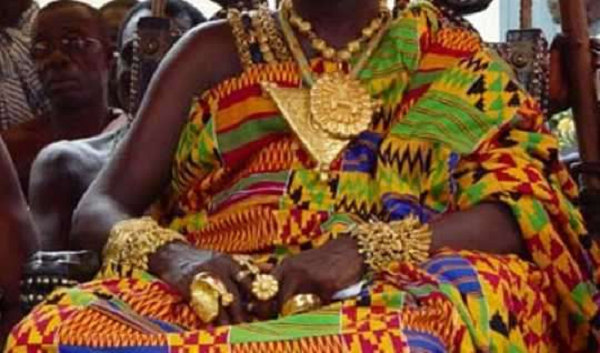KB Asante: Voice From Afar column

We destroy chieftaincy by involving chiefs in active politics
The matter of chiefs and politics has recently surfaced. Ghanaians who are more learned than me in the law and the Constitution have suggested that Article 276 which bars chiefs from active politics should be expunged from the statutes.
Advertisement
I believe that the ban should stay and I feel it is my duty to air the little history I know of the matter.
On this matter, it is useful to recall the observations of the IDEG (Institute for Democratic Governance) publication “Ghana at 50: Tribe or Nation?” by our own learned Kwame A. Ninsin. The “colony” of the Gold Coast was formed from tribal societies which were welded into a nation by treaties with local and foreign entities, especially the British imperial power. The process of forging the union and nation “was to drive J.B. Danquah and his Youth Conference to engineer the political unification of Ashanti and the colony in the Legislative Council that eventually came into being in 1946 under the Burns Constitution”.
Ninsin quotes Wright’s commentary:
“The unification which Ashanti failed to accomplish by military forces in the 18th and 19th centuries has been brought about, within the framework of British power in terms of Western Institutionalisation”. The year 1946 may well come to have the same significance in Gold Coast history as 1707 (Union with Scotland) has in Britain”.
The defeat of Ashanti paved the way for bringing the Northern Territories under direct British rule as a Protectorate within the Order in Council in 1901. Thereafter, the protected territories of the colony were also annexed under an Order in Council of the same year as the Gold Cost colony. On January 1st, when all three Orders in Council came into force, the Gold Coast consisting of three separate territories – the Colony, Ashanti and the Northern Territories came into being. The state Ghana brought the tribes into modern history, with diminished political power, but retaining substantial substance as the embodiment of cultural practices of the people. But as the various native administrations and court ordinances show, the powers that chiefs enjoyed were at the instance of the colonial state and in furtherance of the colonial purpose.
The chiefs, however, did not accept the decline in their power. They advocated the establishment of formal institutions such as the former provincial councils and now the Houses of Chiefs to facilitate their participation in running the affairs of the state.
The educated elite also wanted institutions which would strengthen their participation in the governance of the nation. They demanded self-government not for the colonial tribal entity the British had created but for the nascent nation. The Convention People Party (CPP) government, which emerged at independence, sought to build a Ghana not of tribes but of free and equal citizens whose culture and way of life would be enhanced. It sought to mobilise the youth in the form of activists and “verandah boys” to assist the party achieve its purpose.
The zeal of some of these party activists outran discretion and some chiefs adopted non-traditional authority and methods to maintain and promote unacceptable objectives. Some chiefs were threatened with being forced to run away and leave their sandals – a form of self “de-stoolment”. And so it was that enmity and alliances were forged between some chiefs and political parties.
From the CPP side, I knew cases of harassment of chiefs who were actively against the party. It was not a happy period in our political history. Fortunately, we have realised that we cannot mix hereditary authority with modern democratic rule. As stated, the Constitution bans chiefs from active party politics. The chief can, however, resign the chieftaincy and seek election.
It is important to realise that the Constitution allows a chief to be appointed to any public office for which he or she is qualified. Connected with the idea about chiefs and politics is the insistence that election to the District assemblies should be on non-partisan basis and that district chief executives should be appointed by the President. Events have shown that these provisions are obsolete and obstructive and should be scrapped. The people should have the power to appoint the political officers they desire.
We should scrupulously respect Chapter 22 of our Constitution on chieftaincy. Nana Akufo Addo was right to observe that “No President can de-stool a chief”. But we should know ourselves and admit that Presidents can use their office and power to undermine and remove a “troublesome” chief. Our leaders, especially the President should respect the order of society and institutions.
Our Constitution guarantees chieftaincy. But what do chiefs do? I know that many of our people, especially in the country approach their chiefs with their problems more than they seek the help of state institutions. Our chiefs also have the important functions of culture, values and national personality to nurture. I However find the chapter on chieftaincy in the Constitution as a mere addendum. In essence it tells us how chiefs should organise themselves and nothing more.
The distinguished academician and chief Nana Oti Boateng organised a seminar some time ago to assess the role of chiefs to promote the objectives of the Constitution. I was invited and found it most useful. I formed the view that the chiefs themselves within the mandate of the Constitution should define and promote their contribution to nation building. We need more organised and purposeful chieftaincies like Ashanti to make the institution useful and relevant to the building of a strong and prosperous Ghana.




